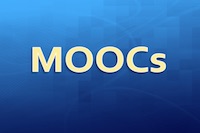Participant Association And Emergent Curriculum In A MOOC: Can The Community Be The Curriculum?
 We investigated how participants associated with each other and developed community in a Massive Open Online Course (MOOC) about Rhizomatic Learning (Rhizo14). We compared learner experiences in two social networking sites (SNSs), Facebook and Twitter. Our combination of thematic analysis of qualitative survey data with analysis of participant observation, activity data, archives and visualisation of SNS data enabled us to reach a deeper understanding of participant perspectives and explore SNS use. Community was present in the course title and understood differently by participants. In the absence of explanation or discussion about community early in the MOOC, a controversy between participants about course expectations emerged that created oppositional discourse. Fall off in activity in MOOCs is common and was evident in Rhizo14. As the course progressed, fewer participants were active in Facebook and some participants reported feelings of exclusion. Despite this, activity in Facebook increased overall. The top 10 most active participants were responsible for 47% of total activity. In the Rhizo14 MOOC, both community and curriculum were expected to emerge within the course. We suggest that there are tensions and even contradictions between ‘Community Is the Curriculum’ and Deleuze and Guattari’s principles of the rhizome, mainly focussed on an absence of heterogeneity. These tensions may be exacerbated by SNSs that use algorithmic streams. We propose the use of networking approaches that enable negotiation and exchange to encourage heterogeneity rather than emergent definition of community.
We investigated how participants associated with each other and developed community in a Massive Open Online Course (MOOC) about Rhizomatic Learning (Rhizo14). We compared learner experiences in two social networking sites (SNSs), Facebook and Twitter. Our combination of thematic analysis of qualitative survey data with analysis of participant observation, activity data, archives and visualisation of SNS data enabled us to reach a deeper understanding of participant perspectives and explore SNS use. Community was present in the course title and understood differently by participants. In the absence of explanation or discussion about community early in the MOOC, a controversy between participants about course expectations emerged that created oppositional discourse. Fall off in activity in MOOCs is common and was evident in Rhizo14. As the course progressed, fewer participants were active in Facebook and some participants reported feelings of exclusion. Despite this, activity in Facebook increased overall. The top 10 most active participants were responsible for 47% of total activity. In the Rhizo14 MOOC, both community and curriculum were expected to emerge within the course. We suggest that there are tensions and even contradictions between ‘Community Is the Curriculum’ and Deleuze and Guattari’s principles of the rhizome, mainly focussed on an absence of heterogeneity. These tensions may be exacerbated by SNSs that use algorithmic streams. We propose the use of networking approaches that enable negotiation and exchange to encourage heterogeneity rather than emergent definition of community.







